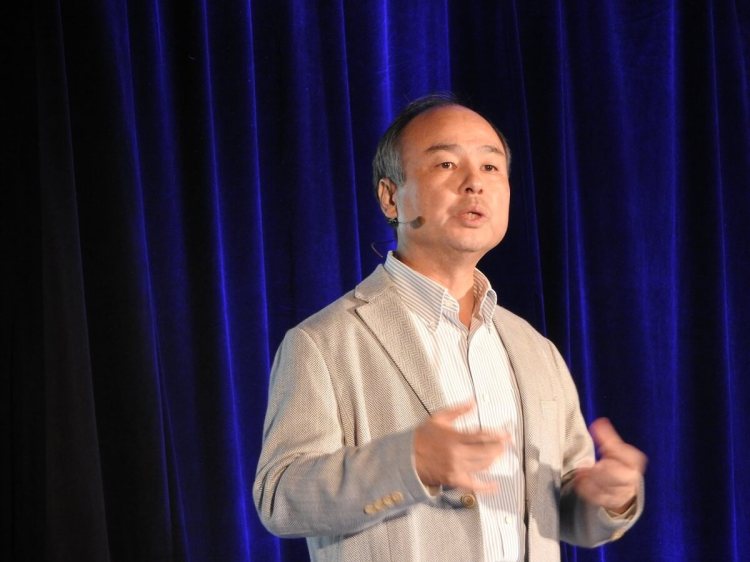Question: Are there any areas you could invest more in the future without backing from a stable partner like SoftBank?
Segars: One way to answer that—it’s not so much there are areas we can go into now that we couldn’t previously. It’s more about degrees of investment. ARM has a very successful track record over the last 18 years. In that time our revenues grew. Our profits grew. Our shareholders bought into this company on this projection of growth at the top and bottom line. That’s all great. We have great relationships with our shareholders and they’ve been very supportive of growth.
As I look at the future ahead, I think about some of the transitions in technology that Masa mentioned. I can think of opportunities where we’d want to make radically different investments. As a public company, that’s something you have to work hard at. If you want to radically change your cost base, or make investments to grow into a new area – to try and anticipate many moves ahead on where the industry is going – that’s quite difficult for a public company. Shareholders typically like linear, predictable, no surprises.
We have an opportunity now to think longer-term and to place bigger bets in ways the public markets might not exactly reward in the short term. We can do that without the overhead of lots of communication, constantly explaining what we’re doing, and being under that magnifying glass. Everything Masa just explained, his view of the future, I completely agree with. I think there are now opportunities to make bigger bets, perhaps in areas that are slightly orthogonal to where ARM traditionally has been. It gives us a greater degree of freedom.
Question: Do you have examples of those areas?
Segars: If you think about the way both software and hardware are coming together to provide this intelligence, there are things that we would ordinarily work through at some pace to deliver. We’d engage with our ecosystem and move that along. Now we can maybe choose to do more of that ourselves, or invest more in the ecosystem at a higher level to make it happen faster.
Question: Have you thought about Twitter? Would it fit your plans at all?
Son: Any specific company name, I can’t comment on.
Question: What about them just as a company? Do you like their business?
Son: No comment.

Above: Masayoshi Son, CEO of SoftBank, foresees life getting easier.
Question: What’s the main talent needed to be an entrepreneur or a leader in this paradigm shift you see coming?
Son: You have to have a deep understanding of technology. You have to have—not an understanding of the past, but the imagination of technology going five years, 10 years, 20 years into the future. Then, come up with a specific strategy, either that breaks through in technology or breaks through with a new business model. Very often both are required. You have to have the sort of leadership to bring people, a team, together to support you. Then things fall together.
Question: You talked about the singularity like it’s a good thing, something we should automatically go for. Elon Musk has talked about AI as something very dangerous, that there should be limits on what we should try to do. How do you think you can make this investment toward the singularity and make sure it’s a good thing?
Son: If you think about the history of mankind, fire made man’s life dramatically change. It’s dangerous if you misuse it, but if you use it in the right way it makes life dramatically better. It’s a double-edged sword. The singularity, if misused, could be super dangerous, but if we use it in the right way, it can help people lead longer and healthier lives. It can help people be more productive, more happy. We might never see accidents on the highway again.
There are lots of great results we can achieve with this technology. If someone could use it, it could be dangerous. But I’m always thinking on the brighter side. I believe in good faith and good will.
Question: What are you doing to reach that singularity through ARM?
Segars: The technology we have today, that we’ve developed over the years, has made life a lot easier. It’s increased quality of life and life expectancy. More intelligent technology is going to help that.
For our part, we do always think about how computing enables this intelligence. Artificial intelligence is about computing. It’s about algorithms. In a lot of use cases it’s not going to be a big computer sitting in a basement somewhere. It’s going to be distributed. It’s going to be in your device. It’s going to be coming through the cloud. Making all of that work requires a lot of technological advances. We’ll be sorting that out over the next couple of days – keynotes today, keynotes tomorrow, the product launches we’re doing this week. They’re all successive steps toward delivering this distributed computing platform through which intelligent algorithms will be able to make our lives better.
VentureBeat's mission is to be a digital town square for technical decision-makers to gain knowledge about transformative enterprise technology and transact. Learn More

